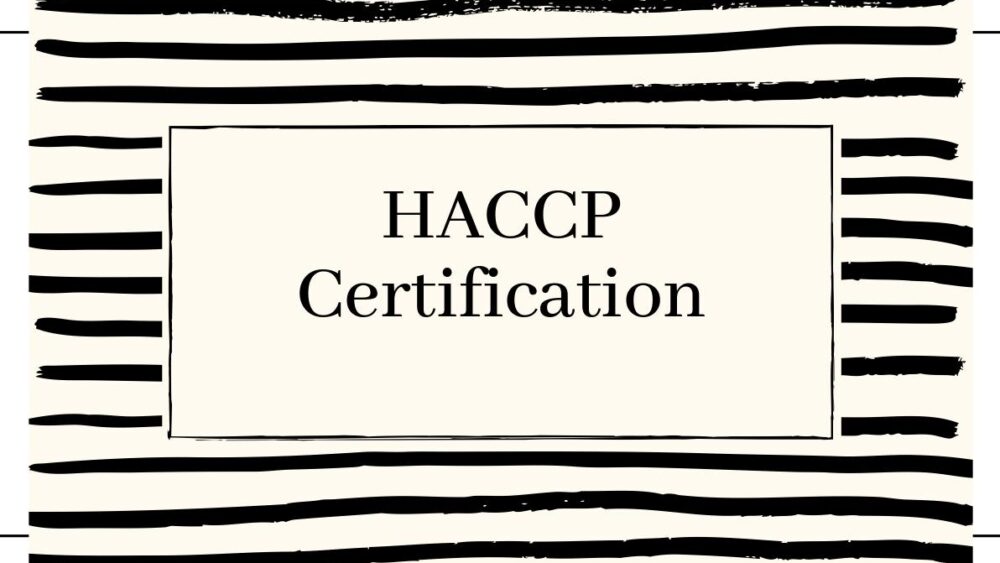Procedure to get HACCP Certification in CALICUT
What is HACCP Certification?
– Hazard Analysis Critical Control Point, or HACCP, is a globally known technique for identifying and controlling food safety hazards in the food industry.
– HACCP Certification is a system that certifies that the food industry has created, documented, and implemented HACCP-compliant systems and processes.
The Benefits of HACCP Certification
– There are several advantages to implementing HACCP and being certified in your food industry. There are numerous business benefits in addition to the apparent benefit to your consumers apart from the fact that they won’t get ill from eating your food. The demonstrated commitment to food safety is the key benefit. This communicates to your consumers and the general public that food safety is a top concern for you and that you have effective control mechanisms in place.
– Second, implementing HACCP in your food industry should result in more efficient resource utilization, cost savings, and faster reaction to food safety issues. HACCP helps you to identify everything that may go wrong in terms of food safety and then devise a strategy to prevent it from happening.
– Having a certified HACCP system in place may also be a necessary or legal requirement depending on where you are located. It might also serve as a foundation for due diligence in a court of law, as well as a wonderful approach to safeguard your brand and reputation.
– Finally, HACCP can result in increased revenue. It may be a necessity for some of your customers to have a HACCP-based food safety management system in place.
The Process of HACCP Certification
The HACCP certification procedure has several phases and is not something that can be accomplished overnight. It necessitates extensive preparation, administrative commitment, and personnel that have been trained in the HACCP procedure. Let’s have a look at what the certification process should involve.
- Be aware of the HACCP parameters.
Understanding the HACCP criteria is the first step in becoming HACCP certified. The International HACCP Alliance has an accredited HACCP Mentor to teach this course. If you don’t have the knowledge in-house, you might hire a food safety specialist.
- Create a HACCP plan.
You’ll need to create and implement a HACCP plan. This strategy must be tailored to your company and the items you sell. It must also address any regulatory obligations imposed by your place of origin and any countries to which you export. It’s a good idea to double-check that your HACCP plan is working properly once you’ve implemented it.
The system scope should be determined throughout the development process. The scope refers to the regions, products, processes, and sites that the HACCP plan or food safety management system will cover. It is also crucial to figure out what the scope is when you are going through the HACCP audit.
- Perform a gap analysis.
If you already have a HACCP plan in place, I strongly advise you to do a gap analysis against the HACCP standard you’ve chosen. This will assist you in identifying any tasks that the HACCP standard requires your company to do. If you are unsure about performing this study, you can hire an outside food safety specialist to assist you.
- Select a third-party certification organization.
HACCP certification is given by an external or third-party certification authority with auditors who have the appropriate expertise and abilities to examine the HACCP system or plan. The food company should always double-check that the external or third-party certification body has the required credentials and accreditation to perform this service.
- Complete the HACCP audit
A food corporation must undergo an audit or review of its food safety and HACCP policies and processes to receive certification from a recognized certification provider. Your audit might be split into two parts: a document review (which can be done remotely) and an onsite review. A follow-up may be necessary if the auditor uncovers serious problems. A professional and qualified food safety auditor should conduct all audits.
Validity of the HACCP certificate
Your HACCP certificate will be valid for as long as the third-party certifying organization specifies. The majority of GFSI recognized standards establish a certificate expiry date of 12 months. If your company is discovered to violate any certification or regulatory criteria, your HACCP certificate might be canceled at any moment.
For services like GST Registration, ISO Certification, IE Code Registration, Partnership Registration, Proprietorship Registration, Trademark Registration, Foreign Branch Setup, LLP Registration, OPC Registration, and Pvt Ltd Registration, visit Corproots.
Suggested Reading: What is a Patent and How to apply for it?

